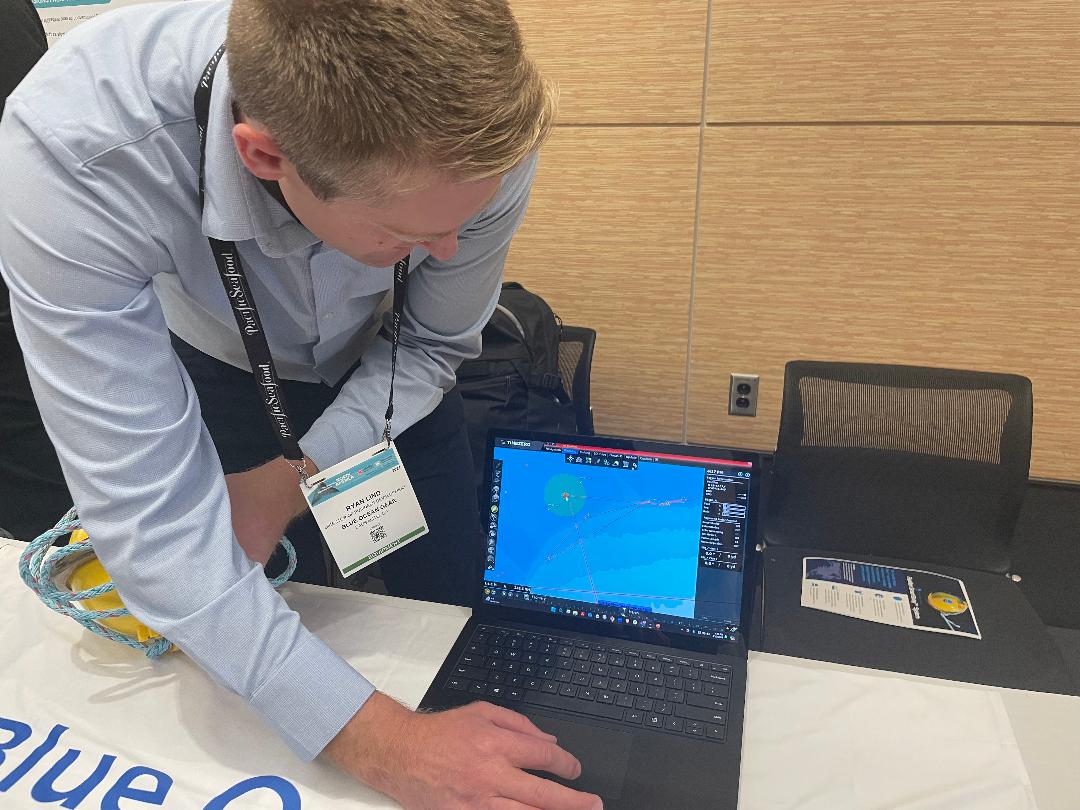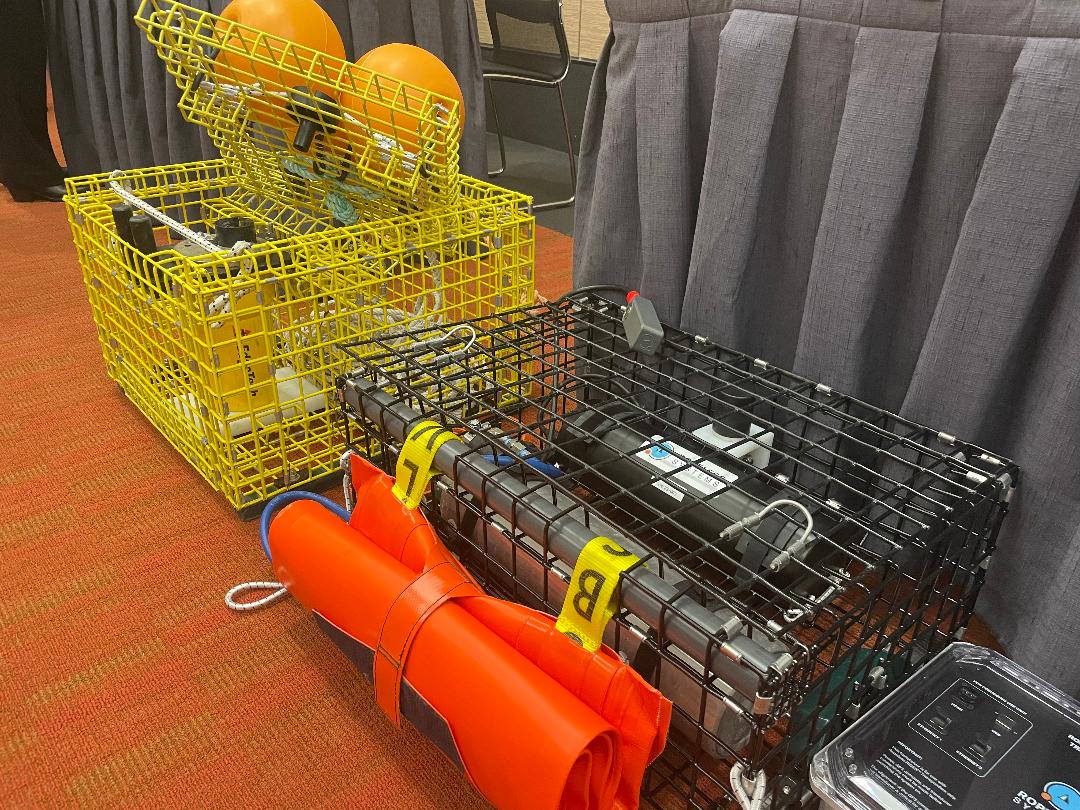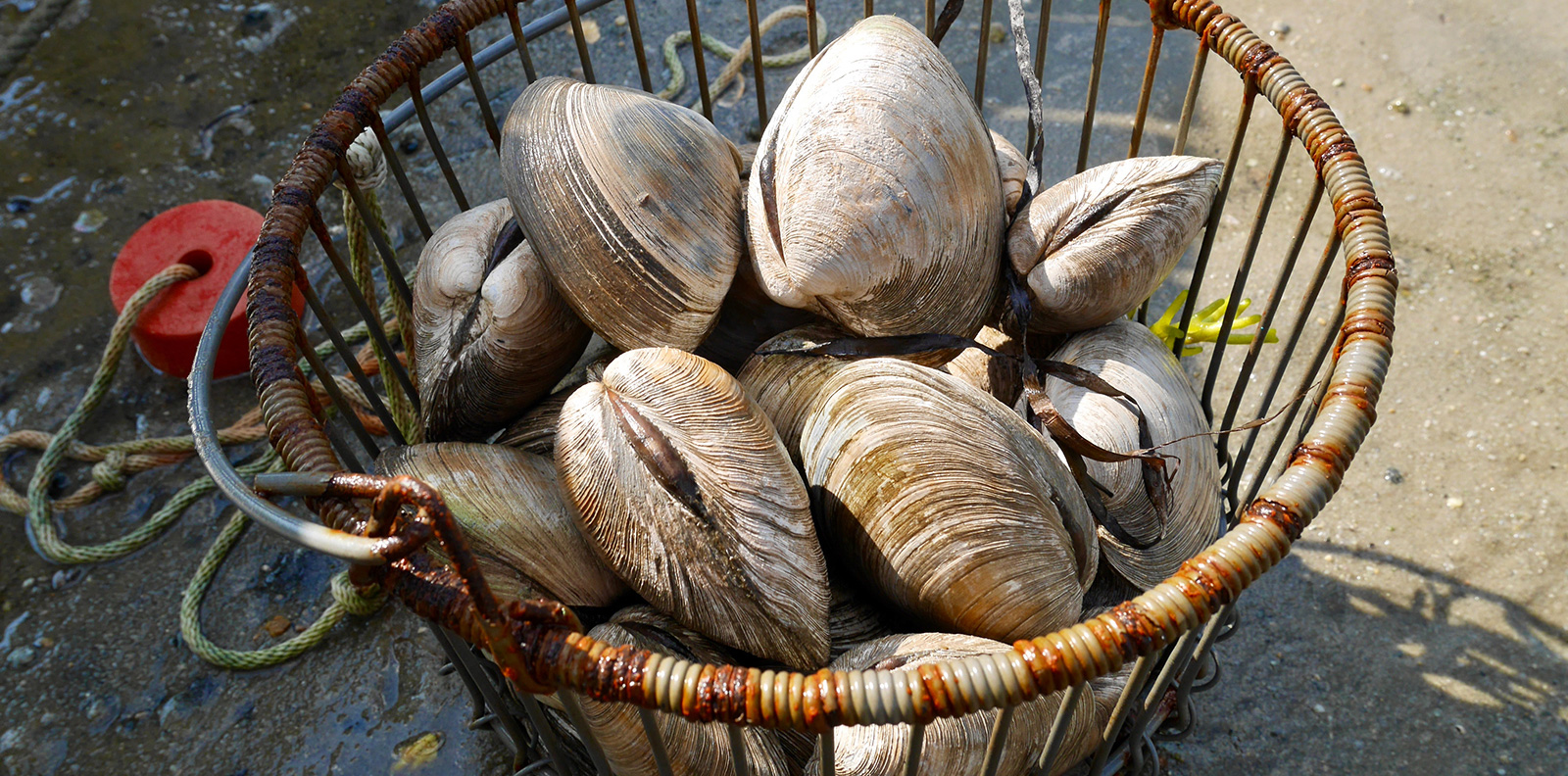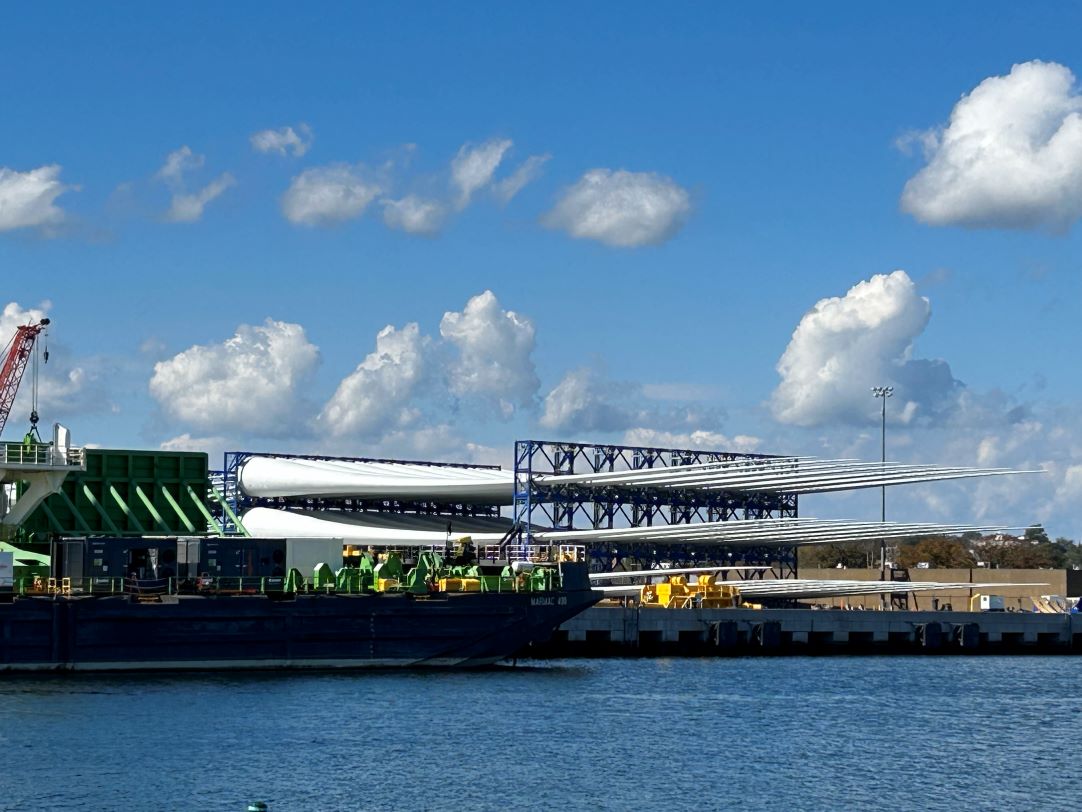Avoiding Bycatch, Greener Packaging, and Local Reliance Touted as Sustainable Solutions at Seafood Expo
March 18, 2024
BOSTON — Hundreds of blue economy businesses from around the globe made their way to New England this week for the Seafood Expo North America.
The event brings together people from every part of the supply chain, including fishers and buyers, to talk about the latest and most popular products and methods in the industry.
From salmon to soy sauce, many touted “sustainable” practices. But what does that really mean?
Gear and bycatch
One of the byproducts of the fishing industry is bycatch — animals that fishers unintentionally catch in the process of getting what they actually want.
According to the National Oceanic and Atmospheric Administration, fish bycatch can lead to overfishing, while the bycatch of threatened populations such as whales, sea turtles, and seabirds can further contribute to their decline.
Sustainable Fisheries Partnership hosted a showcase at the Seafood Expo for some of the companies and groups that are developing tech to prevent these catches.
Several companies are making “ropeless” or “on-demand” gear to replace traditional lobster traps that sit on the ocean floor and have a buoy attached, which have been associated with endangered North Atlantic right whale fatalities.
The ropeless gear deploys a buoy and rope only when called to. Some Rhode Island fishers have already started testing the gear.

Blue Ocean Gear created a smart buoy that can be used in conjunction with the ropeless traps to help fishers locate traps that they can no longer see above the water.
Paired with traditional gear, it can also prevent “ghost gear,” or a lost apparatus that may then catch a whale or sea turtle, injuring or killing them, and alert fishers when traps might move into areas that are closed because of whale migration.
Packaging products
Many seafood products aren’t shelf stable, and so must be packaged in a way that makes them so. That translates to a lot of Styrofoam and other non-reusable, -recyclable, or -compostable materials going into landfills and incinerators.
Chris Sherman, president of Island Creek Oysters out of Duxbury, Mass., said his company “worked for years” to figure out a solution.
Island Creek ships directly to chefs in 46 states, and Sherman said they had to find something that could adequately contain the heavy, sharp, leaky oysters.
Eventually, they landed on a specially made recyclable container that is more expensive — about a dollar more than a traditional package — but Shermain said the packaging has been worth it.
Utilizing small fishers
In a panel about supporting small-scale fisheries, industry experts discussed how buying from local fishers can lead to increased sustainability and even sometimes better profit margins.
Josette Genio, a sustainable markets specialist at Bluer Seas Philippines, a company that works with local, small-scale fishers, said in her own market she is seeing demand increase for fish from the people she works with.
Sustainability can be a marketable asset, she said, in part because buying directly from fishers cuts out the middlemen, helping keep prices lower.
When buying from those small-scale fishers, Genio said it’s “fresher catch … sometimes, they get it at the same price as the [larger] trade hub.”



